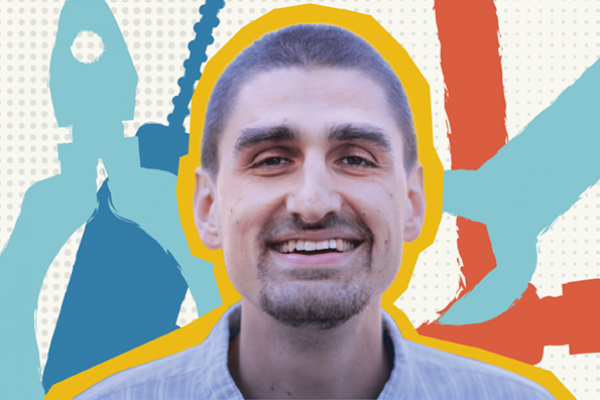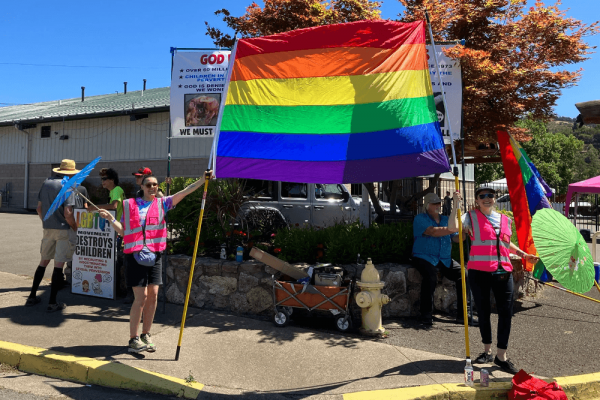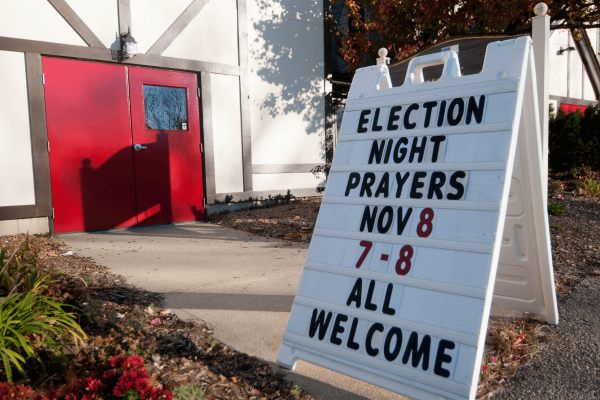It’s easy to be skeptical, even cynical, about the value of sign-on statements as vehicles for achieving any true progress. The key criticism I hear is that these statements and resolutions don’t actually do anything. To some folks, signing on to statements might seem performative or even harmful: a way to soothe our consciences over the brokenness we see all around us by making us feel an illusory sense that we have done something, a sense that creates the permission structure for us not to take any real action to solve the issue in question. To others, these statements aren’t useful because they don’t change anyone’s mind on the issue in question, and instead merely “preach to the choir.”
With presumptive Republican nominee Donald J. Trump and presumptive Democratic nominee President Joe Biden preparing for their upcoming presidential debate on June 27, what do Generation Z Christians hope for in the 2024 election?
Over nearly three decades, Jonathan Wilson-Hartgrove — a self-described “preacher, author, and community builder” — has often played Baruch to Rev. William J. Barber II’s Jeremiah. Through efforts like the Moral Mondays movement and the Poor People’s Campaign, the pair has worked to articulate what they describe as a “Third Reconstruction,” reflected in an agenda that unites the nation’s poor to confront “the interlocking injustices of systemic racism, poverty, ecological devastation.”
Walking into Iglesia La Gloria de Dios Internacional, a Latino Pentecostal church in the heart of Hialeah, Fla., I felt nervous to be on church grounds. I’m Mexican American, but I don’t speak Spanish; I’m an autistic person who really doesn’t like new situations. And even though it’s now been a year since I moved back home to Miami from Minnesota, I am still a bit self-conscious of my Midwestern accent. But most importantly, I am an atheist and an openly queer and trans person living in Florida.
It was a simple wave that changed things for Frankie Leigh. Last summer’s Douglas County Pride festivities were wrapping up. It had been eight hours in near 90-degree heat, eight hours of picketers yelling at Leigh that they were going to hell. And just as the crowds were scattering, a protester called to Leigh. “See you next year!” Leigh couldn’t help but laugh. “It was that realization of like, I am going to see you every year,” Leigh said. “And I’ll probably see you in the grocery store and at the school board meeting and at these other places, too.”
At the beginning of their book, Baptizing America, Brian Kaylor and Beau Underwood return to the Christian nationalist display at the U.S. Capitol on Jan. 6, 2022. No, that’s not a typo.
Early in his adult life, Lau-Lavie is outed in a news article as gay, prompting him to move from Israel to New York in search of a spiritual life that makes more sense than his Orthodox heritage.
On June 1, for the North Carolina residents of downtown Durham, the morning’s new mercies came in the form of Chappell Roan’s song “HOT TO GO!” being played from the century-old bell tower of Duke Memorial United Methodist Church.
The Supreme Court has unanimously dismissed a case that would have limited access to mifepristone, one of the two drugs used in a medication abortion. The decision leaves access to the abortion drug unchanged for now.
Commitment to democratic norms is not a matter of political partisanship. The vast majority of Americans believe in, practice, and defend democracy — but there are partisan elites with powerful antidemocratic impulses gaining a foothold. People of faith have values rooted deeper than any political ideology and have led powerful pro-democracy movements around the world. In Hope and History, Vincent G. Harding reminds us that history, like our democracy, is not a spectacle but a task; it’s “a destiny that is still ours to create.”









